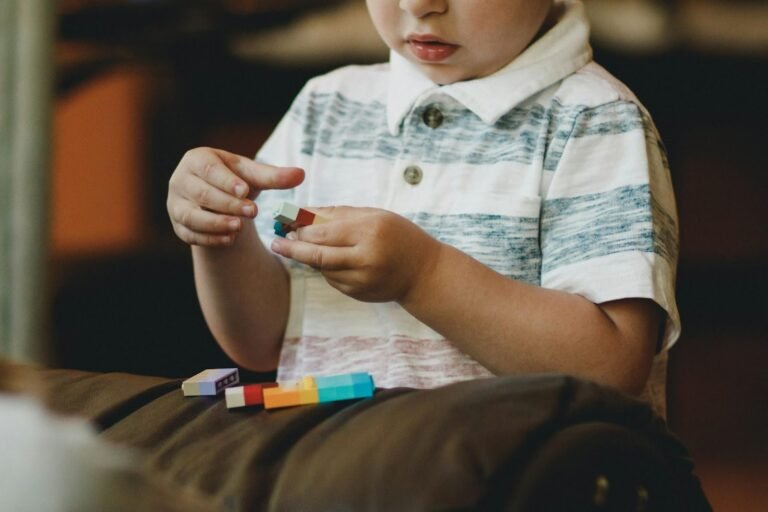Confidence is a cornerstone of personal growth, and for children with autism, fostering self-assurance can be particularly transformative. Autism spectrum disorder (ASD) is characterized by unique challenges in communication, social interactions, and sensory experiences. These differences can sometimes hinder confidence, but with intentional strategies, parents, educators, and caregivers can help children with autism develop self-belief and resilience. Below, we explore six effective ways to build confidence in kids with autism.
Collaborating With Caregivers and Educators
Parents, caregivers, and educators are key to building confidence in children with autism. Working together ensures consistency in strategies and provides a unified support system across home and school. This collaboration can include sharing insights about the child’s strengths, challenges, and practical methods, such as ways to get an autistic child to listen effectively during learning or play. Regular communication helps identify areas where additional support is needed, offering growth opportunities. By aligning efforts and celebrating every achievement, no matter how small, caregivers and educators can create an environment that boosts confidence and fosters progress. Together, they can empower children with autism to thrive in their unique and remarkable ways.
1. Embrace Their Strengths and Interests
Every child possesses unique strengths and interests, and for kids with autism, these can be the key to unlocking their confidence. Whether it’s a passion for art, science, or a fascination with trains, nurturing these interests provides a sense of accomplishment and joy. Recognize and celebrate their talents, using them as a foundation to build new skills.
By focusing on what they excel at, children with autism feel valued and understood. Encourage them to share their interests with others, creating opportunities for social interaction in environments where they feel comfortable. This approach not only boosts self-esteem but also helps them form meaningful connections with peers who share similar interests.
2. Create Predictable Routines
Consistency and predictability are crucial for children with autism. Sudden changes can be overwhelming, leading to anxiety and a lack of confidence. Establishing a daily routine provides a sense of security, allowing them to anticipate what comes next. This stability fosters trust in their environment and enhances their ability to navigate the world independently.
When changes are unavoidable, prepare them in advance. Use visual schedules, social stories, or simple explanations to help them understand what to expect. Gradually introducing new experiences within a structured framework empowers children with autism to handle transitions confidently.
3. Encourage Social Skills Through Play
Social interactions can be daunting for children with autism, but play offers a natural and enjoyable way to practice these skills. Structured playdates or group activities designed to suit their developmental level can gently encourage interaction with others. Role-playing games are particularly effective, as they provide a safe space to explore social scenarios and rehearse appropriate responses.
It’s important to model positive social behaviors and celebrate their efforts, even if progress is slow. Acknowledge small victories, such as maintaining eye contact or sharing toys, to reinforce their achievements. Over time, these experiences build social confidence, helping them navigate real-world interactions with greater ease.
4. Teach Problem-Solving Skills
Empowering children with autism to solve problems independently is a significant confidence booster. Break tasks into manageable steps, providing clear instructions and visual aids if necessary. Encourage them to brainstorm solutions when faced with challenges, offering guidance rather than immediate answers.
For instance, if they struggle to complete a puzzle, prompt them with questions like, “What piece might fit here?” or “What could we try next?” Celebrate their efforts and successes, emphasizing the importance of perseverance. Developing problem-solving skills not only enhances confidence but also fosters a sense of autonomy.
5. Build Communication Confidence
Communication challenges are a hallmark of autism, but there are numerous ways to support their development in this area. For nonverbal children, tools like picture exchange communication systems (PECS) or speech-generating devices can open new avenues for expression. For those with verbal abilities, practicing conversational skills in a supportive environment is key.
Provide ample opportunities for communication, whether through storytelling, answering questions, or participating in group discussions. Avoid correcting them too harshly if they make mistakes; instead, offer gentle feedback to build their confidence. Celebrate their efforts to express themselves, reinforcing that their voice matters.
6. Create Opportunities for Success
Setting achievable goals is essential for building confidence in any child, and it’s particularly vital for those with autism. Start with small, attainable objectives that align with their abilities and interests. Gradually increase the level of challenge as they experience success and build confidence in their capabilities.
For example, if a child is learning to dress independently, begin with simple tasks like putting on socks. Praise their accomplishments and encourage them as they progress to more complex steps. These moments of success teach them that effort leads to achievement, cultivating a growth mindset that will serve them throughout life.
Why Confidence Matters for Kids With Autism
Confidence is more than just feeling good about oneself; it’s about having the courage to try new things, take risks, and learn from mistakes. For children with autism, confidence is the bridge that allows them to engage with the world, build relationships, and develop independence.
When children feel confident, they’re more likely to step outside their comfort zones and embrace challenges. This can lead to meaningful progress in areas such as academics, social skills, and daily living activities. Building confidence in children with autism requires patience, understanding, and a tailored approach that respects their individual needs and abilities.
Building confidence in kids with autism is a journey that requires empathy, creativity, and dedication. By embracing their strengths, creating stable routines, encouraging social skills, teaching problem-solving, supporting communication, and celebrating their successes, we can empower these children to thrive.
Confidence is a gift that lasts a lifetime, and for children with autism, it opens doors to possibilities that might otherwise seem out of reach. With the right strategies and a supportive community, we can help them shine in their unique and beautiful way. Whether at home, in school, or the broader community, every effort to build their confidence is an investment in their future. Let’s commit to creating a world where every child, regardless of their challenges, has the opportunity to believe in themselves and achieve their full potential.

Daniel J. Morgan is the founder of Invidiata Magazine, a premier publication showcasing luxury living, arts, and culture. With a passion for excellence, Daniel has established the magazine as a beacon of sophistication and refinement, captivating discerning audiences worldwide.





